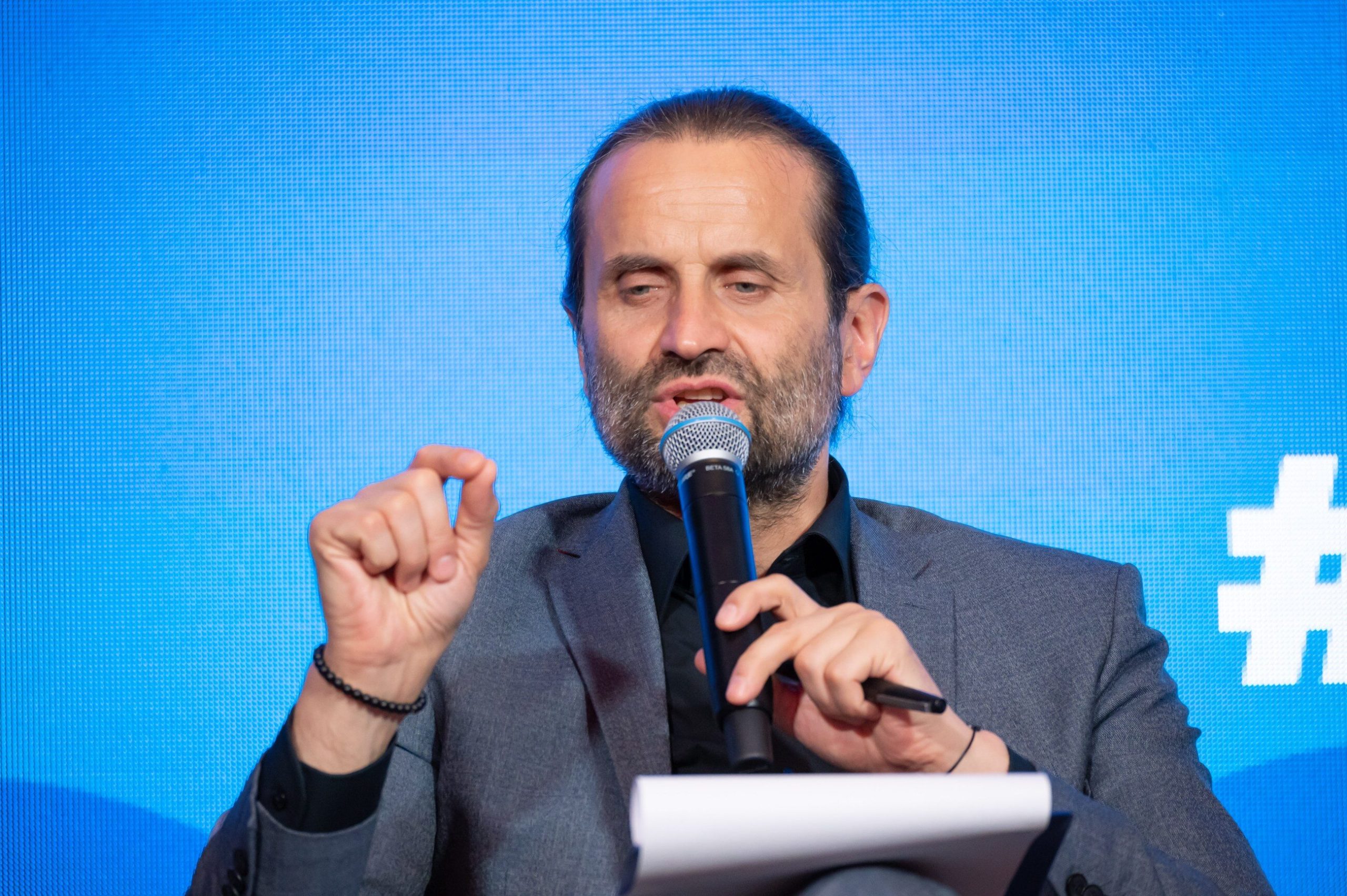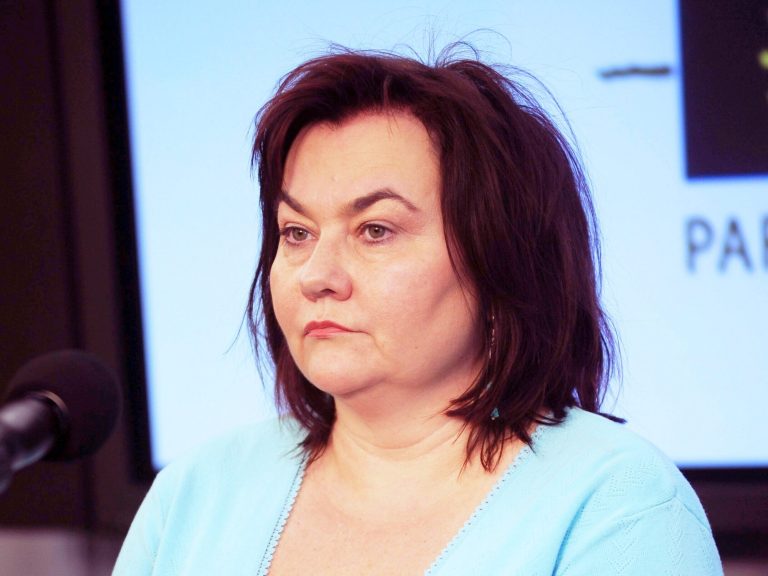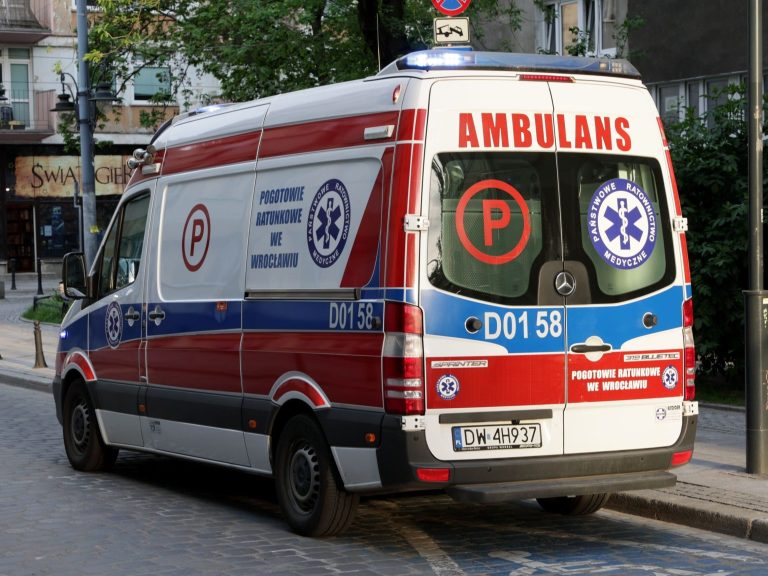Deputy Minister Bromber for Wprost on the education of doctors: Quantity and quality are not mutually exclusive

We care about high quality education. We plan that new standards will be in force from the 2024/2025 academic year, which will have to be implemented by every university offering medical studies, announces Deputy Minister of Health Piotr Bromber. It also talks about new universities, branches of medical universities and what the Act on certain medical professions changes.
Katarzyna Pinkosz, Wprost: You are responsible for, among others, the Ministry of Health: for the development of medical staff. From the new academic year, 34 universities will offer medical courses. Can students starting their studies expect that the same teaching standards will apply as at renowned universities?
Deputy Minister Piotr Bromber: I have emphasized many times that we care very much about high quality education. Quantity and quality are not mutually exclusive. In this respect, we listen to the voice of the professional self-government, rectors and students. We were drawn to the fact that there were too many students in relation to the number of academic teachers, especially during classes in hospitals. Students also emphasized the significant burden of theoretical knowledge. They also pointed out the lack of classes in medical communication, which is an indispensable tool in a doctor’s work, as well as the lack of skills in dealing with difficult situations, such as informing about an unfavorable diagnosis, poor prognosis, or the death of a patient.
Therefore, together with the Ministry of Education and Science, the academic community, representatives of students and the professional self-government of doctors and dentists, we have prepared a draft of a new regulation on education standards. We plan for the new standard to be in force from the 2024/2025 academic year. We want to introduce a system of theoretical and practical teaching that, after the sixth year, will prepare a graduate – a general practitioner – for the next stages of education.
I am convinced that the new standards will meet the expectations placed on them. Limiting theory to what is actually needed and used, preclinical education in Medical Simulation Centers with an increased number of hours, clinical education in smaller groups of 4, verification of practical skills by the OSCE exam must have a positive impact on the quality of education. Every medical university will have to implement new standards.
To make this task easier, we have prepared financial support for the university. We want to support the creation of studios, libraries, laboratories, simulation centers – i.e. facilities necessary for teaching classes, as well as the adaptation of clinical hospitals to the education of students. At the same time, we established two new teams. The first one will prepare solutions that will encourage young people to choose a career path at university. The second one will deal with the issue of teaching in Medical Simulation Centers and conducting the OSCE exam. The second team will include the academic community representing all types of universities currently educating medical students.
We want to prepare a package of ready-made solutions that will allow each university to effectively implement new education standards. This is to guarantee that every student, regardless of where they study, will be educated in the same way.
The Medical University of Wrocław has just announced that it is opening a branch in Wałbrzych. Isn’t creating branches of the Medical University a better solution than creating medical faculties by new universities that have no experience in running medical courses? Shouldn’t we systematically strive to create such branches?
We support such actions. So far, two of the nine medical universities supervised by the Minister of Health have decided to do so: the Medical University of Silesia, which is opening a branch in Bielsko-Biała, and the Medical University of Wrocław with a branch in Wałbrzych.
Medical faculties at all universities had the largest number of candidates this year: often even several dozen people applied for one place. Will the boom in medical fields mean that in the future we will have, for example, too many doctors and too few nurses?
Practicing the profession of a nurse is becoming more and more attractive in Poland. This is no longer the second or third choice of university candidates, but the first. For years, we have been implementing activities to increase the number of professionally active nurses, make the profession more attractive, and encourage people to take up education in this field.
Nurses have the opportunity to obtain qualifications as part of a wide range of postgraduate education, which is financed or co-financed from national and European funds. As part of the REACT-EU project for the health area, PLN 112 million was allocated for financial support for qualification courses and specialist courses for nurses and midwives. Additionally, every year we subsidize specialist training for these professional groups. This year we have planned PLN 10 million for this purpose. Funds are also planned to support postgraduate education of nurses and midwives in the amount of PLN 84 million under the New Financial Perspective 2021-2027 FERS.
In the years 2016-2022, there was a significant increase in total gross remuneration under employment contracts. Thus, for a nurse with a master’s degree and specialization, the total gross salary increased from PLN 4,174 to PLN 11,001, i.e. by 163.55%. For a nurse with a master’s degree or a nurse without a master’s degree and specialization, the total gross salary increased from PLN 4,035 to PLN 8,234, i.e. by 104.06%. In the case of other nurses, the total gross remuneration increased from PLN 3,647 to PLN 7,693, which is 110.94%.
We systematically increase the competences of nurses. We managed to reverse the unfavorable trend of reducing the number of nurses. The number of professionally active nurses as of December 31, 2015 was 221,172, and as of December 31, 2022 – 236,414. The number of schools accredited by the Minister of Health for educating nurses at the first-cycle level is increasing. In 2015, there were 77 universities, in 2023 – 119. Interest in first-cycle studies in nursing has increased. In the 2015/2016 academic year, the number of first-semester students of first-cycle nursing was 5,935 people, and in 2022/2023 – 12,112 people. These are the first effects of our actions.
It seemed that the Act on Certain Medical Professions would not be adopted during this term of the Sejm. Some new professions are satisfied with this act, some protested against the solutions. What will the adoption of this act and the regulation of these professions change for patients?
The provisions of the Act on Certain Medical Professions introduce a mechanism ensuring access to practicing a medical profession only to professionals in a given profession. The Act contains provisions regarding the Central Register of Persons Authorized to Practice the Medical Profession, which will enable verification of the qualifications of persons practicing medical professions by both employers and patients. It also introduces the possibility of taking paid training leave of up to 6 working days. The adopted regulations guarantee the employment of highly qualified and competent medical staff in the health care system. This will result in a high level of health care services provided and thus increase the health safety of patients.
Did the act also introduce changes in the area of psychotherapy?
Yes, changes to the Mental Health Protection Act clearly define the concept of psychotherapy as an intervention conducted as part of health care for people with mental disorders and guarantee an appropriate level of qualifications of psychotherapists, regardless of whether they work in the private or public sector. At the same time, for people undergoing training, we have replaced work under supervision with work under supervision, which is consistent with the current practice used by associations gathering psychotherapists and conducting training and certification. We also gave people who obtained the status of a psychotherapist in a path other than specialization training the opportunity to take the State Specialization Examination.
It is worth recalling that in the area of psychotherapy, we already have specializations in three areas: psychotherapy, psychotherapy of children and adolescents, and addiction psychotherapy.
Is it expected that the list of medical professions will be expanded, e.g. medical coordinators wanted such regulation? There is also a demand for another profession: a genetic counselor. Will the list of medical professions grow?
Please look at it more broadly. There are medical professions in health care. But we also have job positions, skills and specializations in specific fields. In the Act on Certain Professions, we wanted to regulate professions that require pre-graduate, higher or post-secondary education.
Looking long-term: what should a doctor, nurse, paramedic be like in the future? What qualities should they have? What are we aiming for in terms of changes in the quality of education and program changes?
First of all, patients’ expectations are changing. Easier access to medical knowledge and its universality are certainly important. Therefore, in addition to medical knowledge, communication skills, i.e. the ability to talk to the patient and his family, will be increasingly important. Of course, we should also take into account the development of technology and artificial intelligence. With such dynamic changes, it is important for doctors, pharmacists, nurses, midwives, physiotherapists, paramedics, laboratory diagnosticians and other medical professionals to feel safe – that they have the knowledge, competences and skills to enter into a relationship with a patient. That’s why we are changing education standards. Making teaching practical is key.






